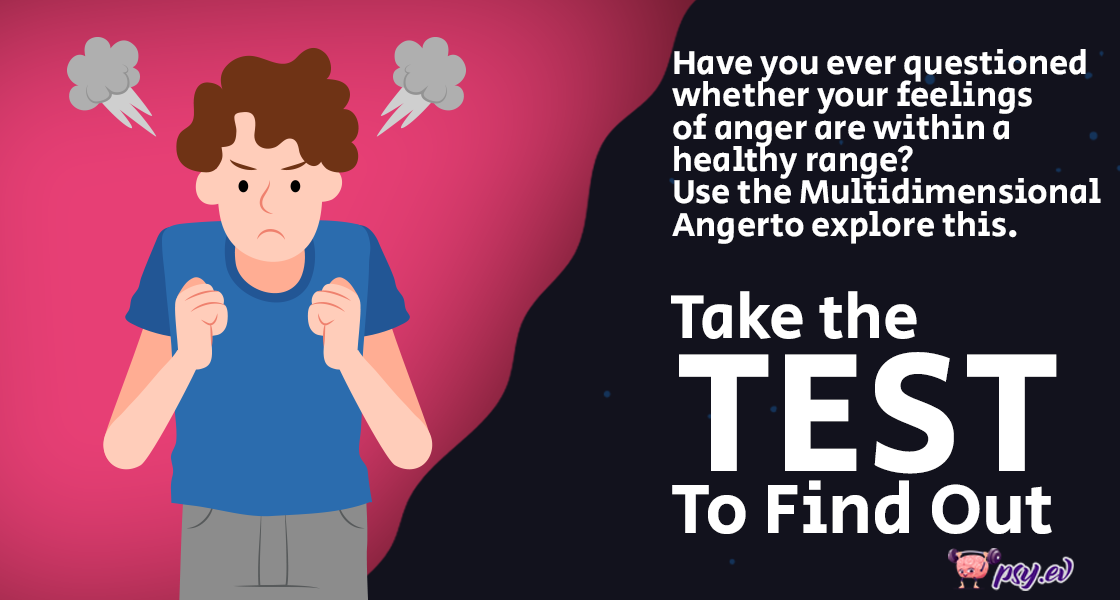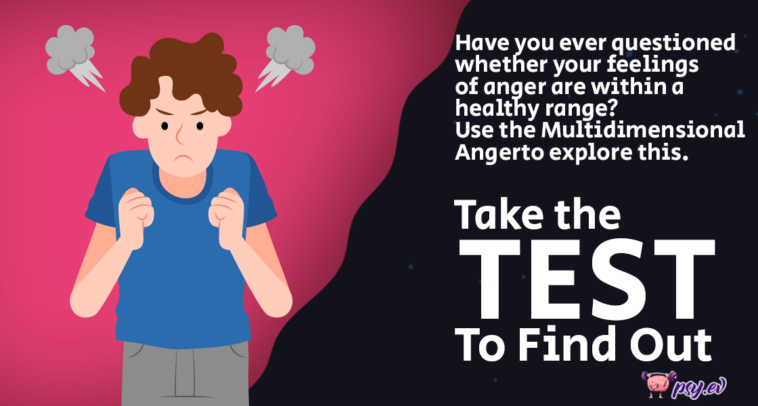Anger can significantly impact your relationships, work, physical and mental health. The multidimensional anger test is a great way to evaluate your range of anger. Complete the multidimensional anger test to receive a thorough analysis of the level of anger you experience. This quick clinically tested quiz assesses a range of signs and emotions connected to anger.
Understanding Anger
Everyone experiences anger occasionally since it is a typical human emotion. Like other emotions, anger is a way to communicate our feelings. It may serve as a signal to others and ourselves about our current needs, whether they be physical or psychological.
But having trouble regulating your anger or having frequent fits of anger might indicate a problem with anger.
Physical symptoms, emotional reactions, or alterations in behavior may all serve as markers. Signs of multidimensional anger include high blood pressure, clenching teeth, quick pulse, muscle stress, and feeling anxious or hot.
You may also observe emotional changes such as irritation, displeasure, anxiety, depression, or loneliness. You can feel out of control or that you have said or done something regrettable while you're angry.
Multidimensional anger is one of the most fundamentally unpleasant feelings that a person may experience. Anything may cause anger, including physical or mental suffering, unreasonable expectations, betrayal, etc.
Anyone who suspects they could be dealing with anger issues should take this test. It can assist you in understanding your emotions and deciding whether you could benefit from talking to a mental health expert about your worries.
The Next Step
Multidimensional anger that goes undetected might lead to other issues. It can result in pathological outbursts of anger. People who continuously belittle others, criticize everything and make sarcastic remarks cannot vent their anger healthily. They are unlikely to have many fulfilling relationships, which is not unexpected.
Not dealing with anger makes staying positive impossible and can affect close and social relationships. However, anger management therapy is a helpful and crucial step toward recovery.
People deal with their angry sentiments in many conscious and unconscious ways. The best way to deal with anger is to express it confidently but non-aggressively. To do this, you must learn how to express your demands and meet them without harming others.
You can regulate anger using therapeutic approaches like cognitive behavioral therapy and counseling. Others could benefit from using relaxation techniques such as mindful relaxation. However, you might require a doctor's prescription for medicine if your anger seems to be on the verge of being explosive or uncontrollable.
Various abilities are required for effective anger management, including spotting the warning signs of anger and dealing constructively with triggers. It necessitates recognizing anger in its early stages and expressing one's needs while keeping composed and in control.
Managing anger is a talent that can be learned. A person may benefit from speaking with a mental health professional or enrolling in an anger management program when anger is damaging relationships, especially if it results in violent or other harmful behavior.
If you get angry easily or have been told you can’t control your anger, you should consider taking the multidimensional anger test. Even if you believe you don’t have anger issues, taking the test can be insightful. We can all benefit greatly by learning more about our emotions.


